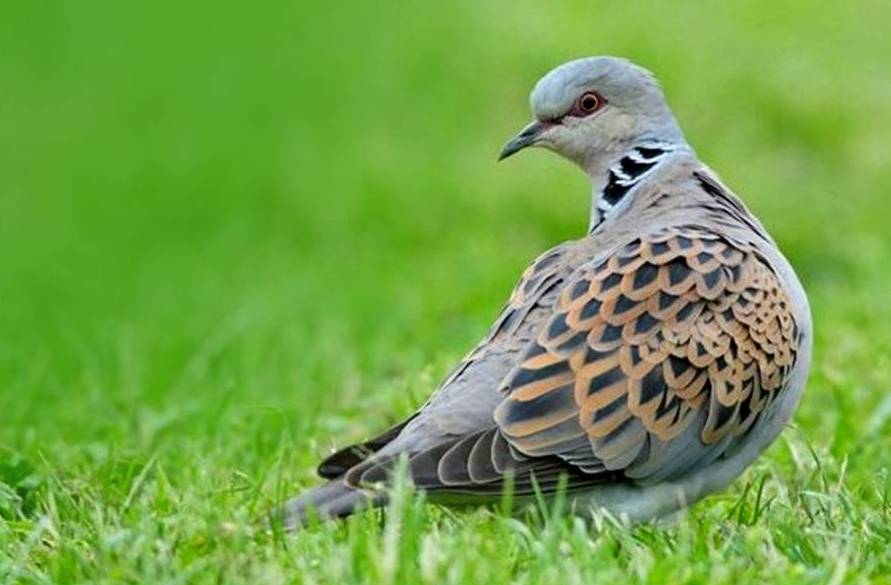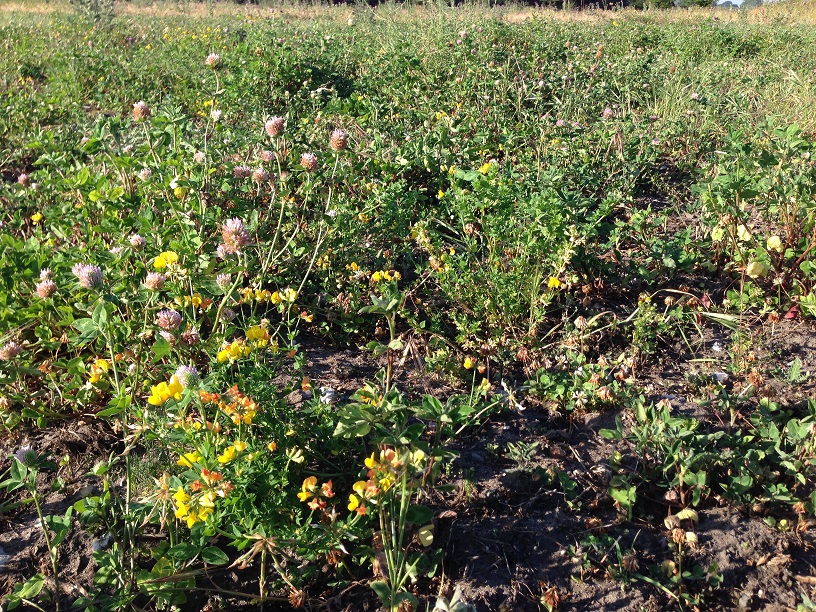Operation Turtle Dove renews appeal for help to save species in light of evidence of turtle doves’ continuing decline
Operation Turtle Dove, a conservation partnership that aims to halt and reverse the decline of one of our most threatened birds, has renewed calls for farmers, landowners and nature-lovers in Eastern England to join the fight to save turtle doves from extinction in the UK.
The latest (2015) report on the findings of the annual UK Breeding Bird Survey, published last week, contained the news that turtle doves, whose numbers had been known to have fallen dramatically by 97 per cent since the 1970s, have been continuing in the same vein in more recent decades, declining by 93 per cent since 1994.
This news follows the addition last year of the European turtle dove to the global Red List of threatened species for the first time, in recognition of the global extinction threat this once common bird now faces.

Chrissie Kelley, of Operation Turtle Dove and Pensthorpe Conservation Trust: “These findings throw a spotlight on the urgent need for immediate action to address the causes of turtle dove decline if we hope to prevent their extinction as a breeding bird in this country in our lifetimes. Significant progress has been made in the last few years towards understanding why turtle dove numbers are falling so fast, now the challenge is to roll out effective solutions fast enough to turn things around before it’s too late.”
Scientists investigating the reasons for the turtle dove’s decline in the UK have found that food availability, or rather lack of it, in the countryside is likely to be the primary factor. Turtle doves are migratory birds that come to the UK in the summer to breed. When they get here they rely on the being an abundance of seeds from arable plants for them to feed on so they can get into breeding condition. Evidence points to the fact that the loss of their preferred food plants from the countryside as a result of agricultural intensification and changes in farming practices leaves the birds struggling to find food and this has ultimately resulted in a halving of the number of breeding attempts turtle doves are able to make each year before they have to leave on the migration back to Africa, where they spend the winter.
Chrissie Kelley: “As as a migratory species, turtle doves spend less than half the year here in Britain, but because this is where they nest, lay eggs, and rear young, what happens to them here has a huge impact on their population. While they also face threats and pressures on migration and in their wintering grounds, for example from hunting and habitat loss, at the end of the day if they are not able to rear enough chicks when they get to the UK, their numbers will continue to fall.”
Farmers and landowners taking up the turtle dove’s cause
The East of England is home to more than half of the UK’s remaining breeding turtle doves, and farmers and landowners in the region are on the front line of efforts to save them by creating feeding habitat for the birds and returning their food plants to the arable landscape.

Robert Hambidge, who farms in the Upper Wensum Valley in Norfolk, is mortified at the current plight of the turtle dove: “Turtle doves are a sound of summer but this steep decline is now leading us to a sound of silence. There is a feeling of urgency for those of us who are trying to safeguard the future of this stunning and gentle farmland species. On my farm turtle doves have been visiting for each and every season except this year, I can only hope and work with other farmers within the Upper Wensum to ensure we do all we can to save turtle doves.”
Samantha Lee, Operation Turtle Dove and RSPB farm conservation adviser: “Farmers in the East of England are already doing amazing work creating feeding habitat for turtle doves on their land, but turtle doves desperately need more farmers to come to their aid.
“Thanks to the Countryside Stewardship grants available to farmers for providing habitat for wildlife, helping turtle doves doesn’t mean having to take a financial hit by losing crop production capacity, but many farmers are going above and beyond the requirements of the Countryside Stewardship schemes, which is fantastic.”
As part of Operation Turtle Dove, RSPB turtle dove conservation advisers are able to support farmers in turtle dove hotspots in the East and South-East of England by providing free habitat management advice and assisting with Countryside Stewardship applications.
What can the rest of us do?
Chrissie Kelley: “There are still things you can do to help turtle doves if you are one the majority of people who don’t have a farm, whether it’s in your garden, by supporting wildlife-friendly farmers through your shopping choices, or donating directly to the work of Operation Turtle Dove.”
Report a turtle dove sighting
Operation Turtle Dove uses turtle dove sightings submitted by the public to help target conservation activities at the locations where they will have the biggest positive impact.
Shop for turtle doves
Look out for ‘Fair to Nature’ products when you go shopping. Brands with the Fair to Nature logo source their ingredients from farms that actively manage at least 10 per cent of their farmland for the benefit of wildlife, including turtle doves.
Help turtle doves in your garden
If you have a country garden near arable farmland, you can help turtle doves by letting hedges and scrubby areas grow as tall, wide and bushy as possible, creating potential nesting habitat, and by planting fumitory, black medick, red and white clover, common vetch, and birds foot trefoil, as sources of seeds that the birds eat.
Support Operation Turtle Dove
By donating to Operation Turtle Dove, can help fund vital conservation efforts to make sure that turtle doves remain a feature of the British countryside in summer.








